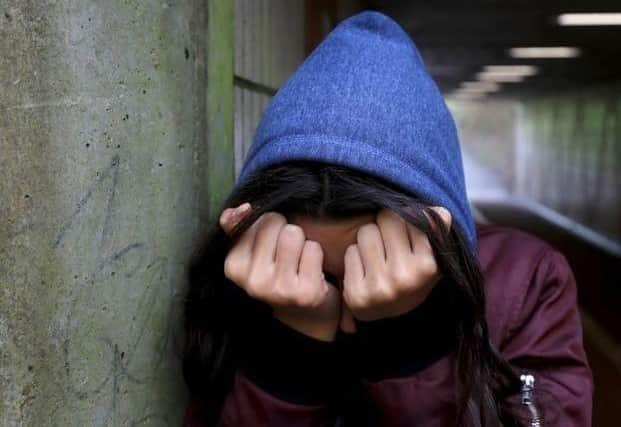One in four secondary school children in Milton Keynes is suffering mental health problems, shock report reveals
and live on Freeview channel 276
A shocking new report has revealed one in four 11 to 16-year-olds in Milton Keynes is suffering mental health problems.
And it seems they are simply not getting the help they need, local experts have said.
Advertisement
Hide AdAdvertisement
Hide AdSome 25% of youngsters questioned told researchers for the city’s annual Vital Signs report that they’d had a mental health problem in the past 12 months and often or always felt “sad or empty”.


The same percentage said they were skipping meals due to weight concerns, while 38% said they spent more than four hours a day on social media networking sites.
The lead for the MK Mental Health Leads Network, Liz Nightingale, says identified sources of anxiety may include parental stress around cost-of-living, which is picked up by children even though parents try to keep it from them.
She said some children had also been affected by trauma, domestic violence and bereavement, which fuels anxiety. And social media usage may create anxiety among some young people in relation to body image for example, and can allow abusive relationships to develop between children.
Advertisement
Hide AdAdvertisement
Hide AdThe Vital Signs report, which is prepared by Milton Keynes Community Foundation, found the Covid pandemic caused a increase in children and young people suffering mental health crisis. This included a rise in the numbers presenting with eating disorders.
Then, following the first lockdown, there was a surge in mental health referrals when children went back to school.
But the rocketing numbers have made it even more difficult for families to get help in Milton Keynes. The average wait to be even assessed by the Milton Keynes Child and Adolescent Mental Health Services is 20 weeks and wait times for a routine follow up are also lengthy.
The city’s Public Health Principal for children, James Dove, said: “The data and feedback from stakeholders suggest that there are service gaps, particularly in the ‘Getting Help’ group of services, which are often provided by the voluntary and community sector.
Advertisement
Hide AdAdvertisement
Hide Ad“The services are currently not well-resourced and have no long-term stable funding stream. This can result in children and young people having limited access to early help and referrals being made to CAMHS that often do not meet their criteria and would not be appropriate to receive their support.
"The ‘knock on impact’ can also result in CAMHS experiencing significant pressures and demand on their resources. Children and young people can therefore wait longer for support and consequently end up needing much more intensive services that may have never needed in the first place.”
Recently one charity offering free counselling services for young people in the city has recently been forced to close. YiS had been facing continual pressure due to lack of funding and could not make ends meet any longer.
Meanwhile, in desperation some young people are turning up at A&E for help with their mental health.
Advertisement
Hide AdAdvertisement
Hide AdOne senior Sister on the Children’s Emergency Ward at MK Hospital, said: “We get a lot of children who are currently on the waiting list for Children and Young People’s Mental Health Services (CAMHS) coming into the Emergency Department as they are advised if they come to the Emergency Department they may be seen quicker.
"We explain to parents that presenting to the Emergency Department will not affect their place on the waiting list, however we will assess and support their child based on their current presentation.”
The report says have a key role in identifying those with mental health disorders.
"Resources they can use are counsellors employed by the school, referring the young person to support services provided by charities and in some areas, local GPs can signpost parents towards support,” it states.
Advertisement
Hide AdAdvertisement
Hide AdLiz Nightingale, who is also a local head teacher, admitted she was worried about the future in relation to the mental health of children and young people.
"Parents and professionals can find it harder to understand the pressures that children are under. For example, how their constant use of social media can exacerbate problems especially as things change so quickly with modern technology and the content they are being exposed to.
"Underfunding is also a cause for concern, especially if schools cannot afford to fund support services for their pupils.”